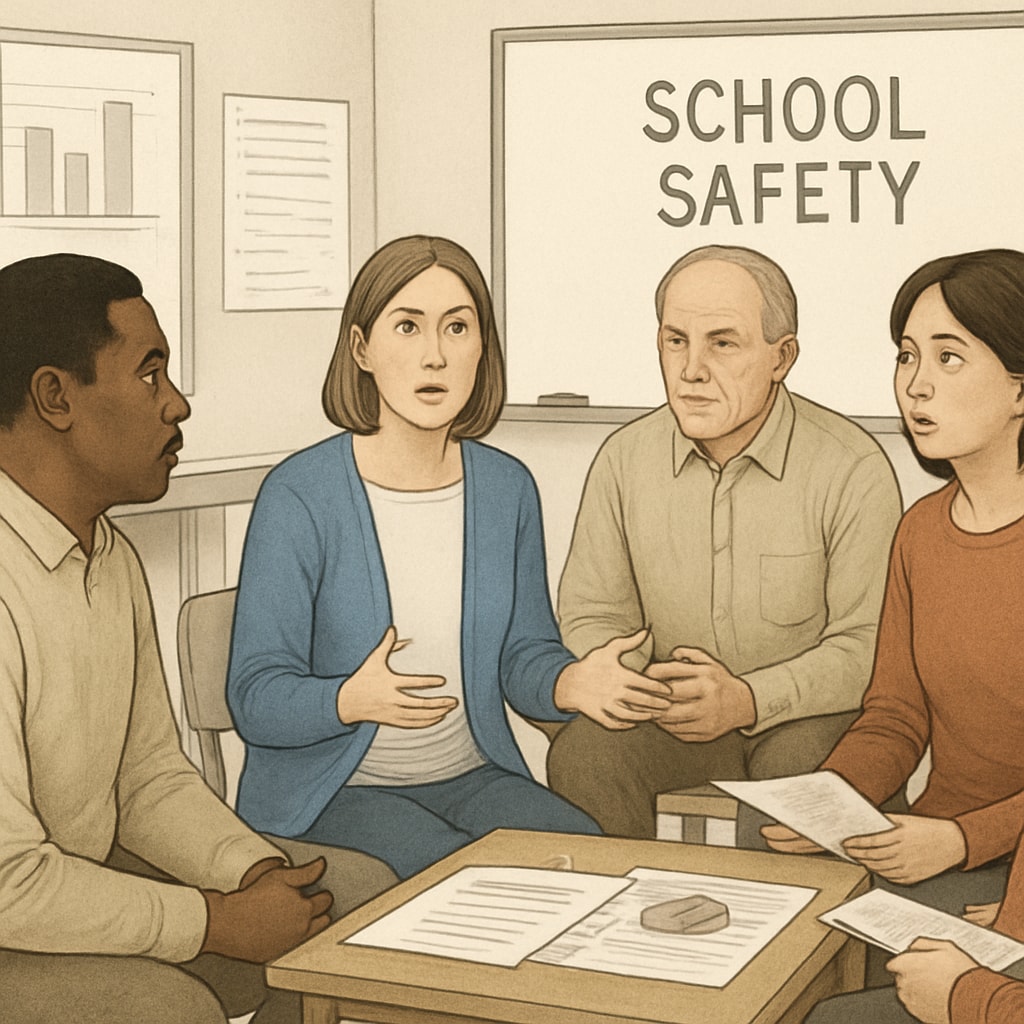When a school board member is found to have a history of child abuse, it creates a significant crisis for both the school and the community. The presence of such individuals in positions of authority raises questions about safety, oversight, and the moral integrity of school governance. In this article, we discuss how parents, educators, and community members can take action to protect students while ensuring that those in leadership roles meet the highest ethical standards.

Understanding the Impact of Child Abuse Histories in School Governance
The discovery that a school board member has a history of child abuse can deeply unsettle a community. Such revelations not only undermine trust in the school system but also pose serious risks to student safety and well-being. School board members play a critical role in shaping educational policies, managing budgets, and making decisions that affect the entire school community. When someone with a history of harmful behavior occupies this role, it compromises their ability to lead ethically and responsibly.
Moreover, the presence of such individuals can create a chilling atmosphere for students and staff alike. For example, survivors of abuse may feel retraumatized knowing someone with a problematic past occupies a position of power. This underscores the importance of addressing these situations swiftly and decisively.
Steps for Communities to Take Action
Addressing this sensitive issue requires a proactive and united response from the community. Here are some actionable steps parents, educators, and community members can take:
- Research and verify allegations: Before taking any action, it is crucial to confirm the accuracy of the allegations. Public records, legal documents, and credible news sources can provide clarity.
- Engage with local authorities: Inform local law enforcement or child protection agencies if the individual’s history poses a direct threat to students. They can guide further actions and ensure legal compliance.
- Mobilize community forums: Organize town hall meetings or parent-teacher association (PTA) gatherings to discuss the issue collectively. These forums allow concerned individuals to voice their opinions and propose solutions.
- Petition for removal: In many jurisdictions, there are legal processes to remove school board members who fail to meet ethical or professional standards. A community-backed petition can demonstrate widespread concern.
- Advocate for background checks: Push for stricter background screening processes for all school board candidates to prevent similar issues in the future.

Promoting Long-Term Solutions for Ethical Leadership
While immediate action is necessary to address the current issue, it is equally important to implement long-term safeguards. Ensuring that school boards remain ethical and transparent requires systemic changes. Here are some recommendations:
- Mandatory training: Require school board members to undergo training on child protection, ethics, and leadership responsibilities.
- Community oversight committees: Establish independent committees to monitor school board activities and provide accountability.
- Public awareness campaigns: Educate the community about the importance of vetting candidates for school governance roles.
- State-level regulations: Advocate for state or national policies that disqualify individuals with histories of abuse from holding positions in education.
These measures not only protect students but also rebuild trust in the school system. By prioritizing transparency and accountability, communities can ensure that their schools remain safe spaces for learning and growth.
Why Unity Matters in Addressing School Governance Issues
Community unity is a powerful tool when addressing sensitive issues like this. By working together, parents, educators, and local residents can amplify their voices and effect meaningful change. For example, a united front can pressure school districts to take swift action, whether by launching investigations or implementing policy reforms. Additionally, solidarity within the community sends a strong message that child safety is non-negotiable.
It is also essential to approach these situations with care and respect. While strong action is necessary, it is important to avoid creating a hostile environment that could deter future candidates from running for school board positions. Balancing firmness with fairness ensures that the focus remains on protecting students and upholding ethical standards.
In conclusion, addressing the presence of a school board member with a history of child abuse requires both immediate action and long-term strategies. By mobilizing the community, advocating for systemic reforms, and fostering unity, we can protect students and maintain the integrity of our educational institutions.
Readability guidance: This article uses short paragraphs, actionable lists, and clear transitions to ensure accessibility. The language is concise, and technical terms are explained where necessary to maintain reader engagement.


